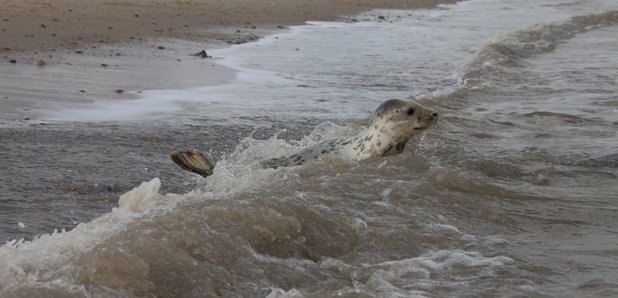On Air Now
Heart's Club Classics with Pandora Christie 7pm - 11pm
7 February 2019, 08:39 | Updated: 7 February 2019, 08:40

Grey seal colony hotspots in Norfolk are threatened by tiny pellets of plastic known as "nurdles", conservationists have warned.
More than 3,000 seal pups were born at Blakeney National Nature Reserve this winter, and a record 2,000 were born at nearby Horsey.
But researchers from Fauna and Flora International (FFI), who spent two days in January searching five beaches in Norfolk, found hundreds of nurdles littering the ground near some of the young mammals' favourite spots.
Nurdles are tiny plastic pellets which are produced and melted together to create new plastic products, but which can be spilt or discarded into the environment.
An estimated 53 billion nurdles end up in the oceans each year, FFI said.
Seals are known to ingest microplastics, most likely by eating prey that has eaten the tiny plastics, the conservation group said.
And studies suggest that pieces of plastic such as nurdles may transport chemical contaminants into the bodies of marine animals when eaten.
Dilyana Mihaylova, marine plastics projects manager at FFI, said: "All companies that make, use and transport nurdles must take action to stop these microplastics polluting Britain's beaches and damaging critical habitats for our iconic seal colonies.
"It is clear that nurdle pollution continues to be a chronic problem despite some voluntary efforts to prevent it.
"The plastics industry needs to implement robust measures across its entire supply chain to stop nurdle pollution."
The warning comes ahead of the "great global nurdle hunt" which starts on Friday, and involve volunteers scouring beaches searching for the plastic pellets.
Last year the hunt, organised by environmental charity Fidra, one of FFI's partners in Scotland, saw 279 sites in the UK searched, with nurdles found on almost three-quarters of them (73%).
On one cove in Tregantle, Cornwall, more than 400,000 plastic pellets were found.